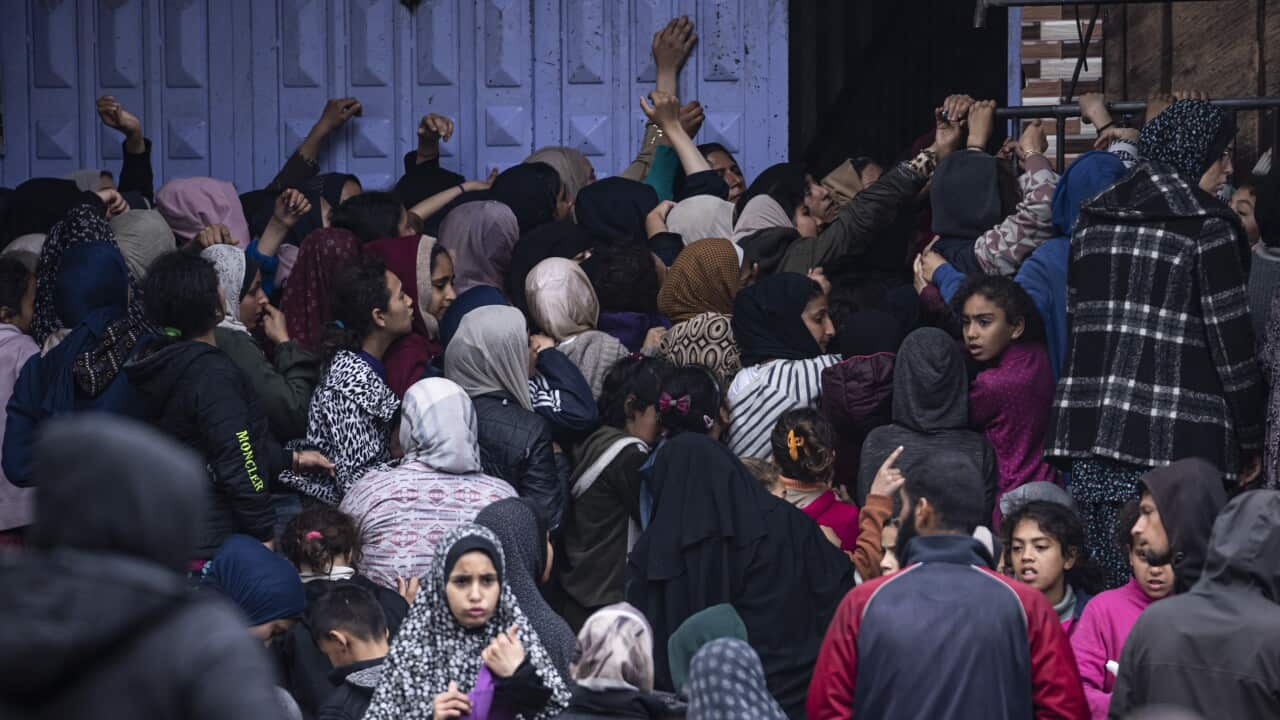TRANSCRIPT
The United Nations says the Nasser Hospital in Khan Younis is no longer operating, following a series of raids by Israeli forces.
Health officials say the hospital has been left understaffed and is in dire need of electric power and water supply to treat the hundreds of patients who are in dire need of care.
Israeli Defence Forces have said they had crucial intelligence that Hamas militants had been using the hospital to hide weapons and hostages captured during the October 7th raids.
One of the patients being treated at the hospital recalls how she was forced to evacuate.
“There was shooting, tanks and bulldozers and no-one was allowed to move. There were also snipers and no one was allowed to open a window or reach the gate of the hospital. They sent someone who asked us to leave but we did not. We were scared. Where were we supposed to go? We stayed inside.”
According to UN health officials, at least seven people died at the hospital due to a lack of oxygen, with that number predicted to rise.
There are only four medical teams remaining at the facility - 25 people in total - to provide essential care for its patients.
At the same time, the Israeli forces are continuing to progress their offensive in Gaza's south.
Witnesses and media agencies from Gaza say air strikes in northern Rafah have killed six people.
Israel's Prime Minister, Benjamin Netanyahu, remains firm in his intention to move forward with the operation, despite strong criticism from the international community.
“We will not submit to international dictates in the future settlement with the Palestinians. I made it clear to the cabinet and I repeat and emphasise to the world tonight as well - the agreement will be reached only through direct negotiations between the parties, without preconditions. Israel under my leadership will continue to strongly oppose the unilateral recognition of a Palestinian state. And when do you want to give this unilateral recognition? After the terrible massacre of October 7? There can be no greater reward for terrorism.”
Global leaders have expressed their unhappiness with Israel's movements in southern Gaza, with fears they could lead to a massive influx of migrants into Egypt.
Egypt continues to reinforce its border with southern Gaza at Rafah, preparing for the possibility that the war between Israel and Hamas would extend into its own territory.
However, Egyptian Foreign Affairs Minister Sameh Shoukry has denied that his country is making contingency plans regarding a potential flood of refugees into Egypt.
“No, we’re not. We will not deal with the hypothetical. And we will continue to call upon all our friends, all of those who understand the complexities and the dangers associated with it, to not only provide support by rhetoric but to indicate clearly that there will be consequences for any form of displacement.”
Mr Shoukry has emphasised the disastrous effects on bilateral relations with Egypt of what he calls Israel's multiple human rights violations.
“From the outset, we’ve communicated both to the Israelis and to our partners that it crosses a red line, that the issue of displacement, which is a violation of international humanitarian law whether it’s internal or external, cannot be tolerated. Its consequences and the threat that it poses to Egypt’s national security are immense, it puts a strain on bilateral relations with Israel and we need to avoid the very tragic consequences on the civilians of Gaza, who are now amassed, 1.3, 1.4 million, in the most densely populated area in the world.”
The U-N Security Council appears set to hold another vote for a ceasefire in the enclave, spurred by an initial draft request submitted by Algerian officials.
The United States seems likely to veto the vote, according to statements made by their ambassador to the UN, Linda Thomas-Greenfield.
During a panel discussion for a Security Conference held in Munich, Saudi Arabian Foreign Minister Faisal bin Farhan Al Saud has said the ceasefire is necessary to provide humanitarian aid for the people who have been displaced by the war.
“We've made clear to the Americans and others that, from our perspective, the first priority needs to be addressing the humanitarian crisis in Gaza, we need to find a way to end the fighting in Gaza, we need to find a way to ensure access for humanitarian goods to the people of Gaza. And once that's done, we're open to all discussions in the same context that we were before October 7th. And as I said, a key element and a key priority of that has and continues to be the issue of Palestinian statehood.”
The health ministry in Gaza says around 29,000 people have lost their lives since the start of Israel's military operation in the enclave, which was triggered by Hamas' October 7 attacks.
There are fears that number will climb much higher should the Israeli forces continue with their operation in Rafah, where over 1,5 million displaced Palestinians have sought refuge.













